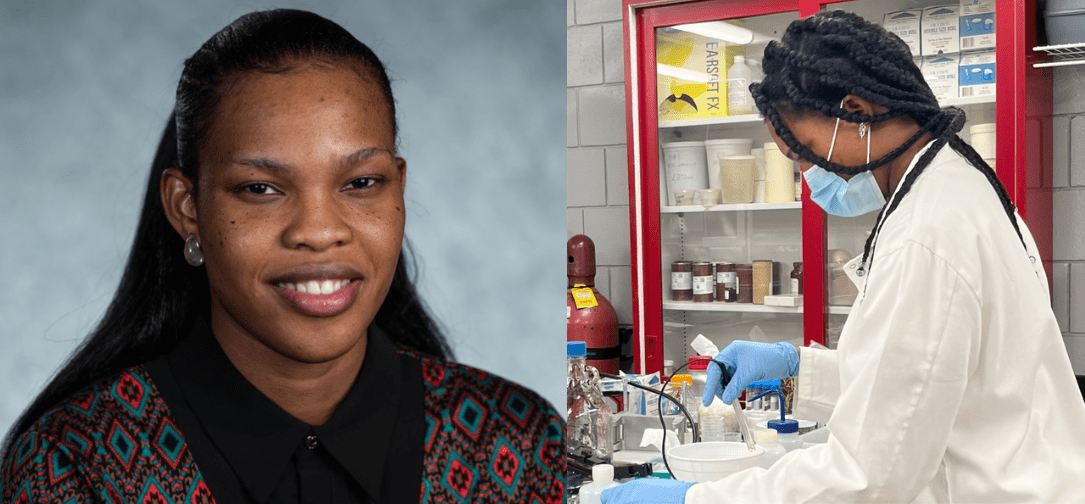The recognition of Egondu Umeobi as a 2025 Bayer Fellow by the American Society of Agronomy (ASA), Crop Science Society of America (CSSA), and Soil Science Society of America (SSSA) holds significance that extends far beyond the United States. Her research on soil health, remediation, and sustainable land management resonates deeply with the priorities of the United Kingdom, which faces growing environmental challenges linked to soil degradation, industrial contamination, and the urgent need for sustainable agricultural reform.
This spotlight on Umeobi reflects not only her academic excellence but also the global relevance of her work. As a Nigerian-born PhD candidate at The Ohio State University, her scientific expertise aligns with the UK’s ongoing commitments under the 25-Year Environment Plan, the Environment Act 2021, and the UK Soil Health Action Plan. Her skill set directly addresses critical environmental and agricultural issues that the UK continues to confront: soil erosion, heavy metal contamination, biodiversity loss, and the sustainable management of post-industrial land.
Addressing the UK’s Soil and Environmental Challenges
The United Kingdom loses an estimated 2.9 million tonnes of topsoil annually due to erosion and poor land management. According to the UK Centre for Ecology & Hydrology (UKCEH), nearly 18% of the country’s arable land already shows signs of declining organic matter content, while many brownfield and post-industrial areas still bear traces of toxic heavy metals such as lead, cadmium, and arsenic. These conditions reduce soil fertility, harm biodiversity, and contribute to flooding and poor water quality.
Egondu Umeobi’s research provides practical, data-driven solutions to these problems. Her work examines how organic amendments such as compost and bio-based waste materials can rehabilitate contaminated soils, restore microbial balance, and increase resilience against environmental stress. This approach is directly relevant to the UK’s sustainability agenda, particularly within regions like the Midlands and Northern England, where legacy mining and industrial activity have left complex soil pollution challenges.
Her focus on improving soil health through compost addition and organic amendments mirrors several UK initiatives promoting circular economy principles and sustainable waste management. For example, the UK government’s Resources and Waste Strategy encourages the use of organic waste in improving soil structure and fertility while reducing landfill dependency. Umeobi’s findings demonstrate how compost can alter chemical speciation, immobilize toxic metals, and restore productive capacity in degraded soils.
If integrated into the UK’s environmental policies and agricultural practices, her research methods could support national efforts to reduce carbon emissions, enhance soil biodiversity, and achieve targets under the Net Zero Strategy. Her work also reinforces the UK’s broader international commitments under the Sustainable Development Goals (SDG 2, SDG 13, and SDG 15), focusing on food security, climate action, and life on land.
Bridging Science, Policy, and Sustainability
The UK’s environmental policy community has long emphasised the need for stronger collaboration between scientists, policymakers, and farmers. Egondu Umeobi’s leadership exemplifies this bridge. Her work does not remain confined to the laboratory; it connects evidence-based science with policy-driven outcomes. This quality is what makes her research valuable to the UK, where environmental decision-making increasingly depends on scientific evidence and data-led innovation.
Her model for soil remediation provides a framework that could enhance the UK’s local and regional land-use planning systems. As the country continues to redevelop post-industrial landscapes into housing, renewable energy sites, or agricultural land, her expertise in soil remediation using natural amendments could inform practical, low-cost, and sustainable strategies.
Her evidence-based approach also aligns with the UK’s “Environmental Land Management Schemes” (ELMS), which reward farmers for adopting practices that protect soil and water resources. Umeobi’s findings could contribute to training programmes and knowledge exchange between UK universities, environmental agencies, and agricultural stakeholders. Her research could strengthen the transition from traditional remediation methods that rely on chemicals to those that integrate ecological principles.
Supporting the UK’s Food Security and Climate Goals
Healthy soil is essential to food security, yet about 16% of UK agricultural land suffers from compaction and declining fertility. The Royal Society has warned that if current trends continue, the UK’s capacity to grow food sustainably will decline significantly within the next 30 years. Umeobi’s research on soil health directly contributes to reversing these trends by enhancing nutrient cycling, improving soil organic matter, and reducing the uptake of heavy metals by crops.
By demonstrating how organic waste can improve soil properties, her work supports circular economy models that could reduce dependence on synthetic fertilizers, many of which are imported and energy-intensive. This is particularly important as the UK seeks to balance domestic food production with environmental commitments under the Agriculture Act 2020. Her research presents practical methods that can help British farmers increase productivity while reducing environmental risks.
In addition, her research on heavy metal contamination intersects with public health and environmental justice, both central to the UK’s environmental agenda. Communities near industrial sites often face higher exposure to pollutants. Umeobi’s methodologies provide safer, cost-effective techniques for remediating these sites, aligning with the UK government’s focus on environmental equality and cleaner communities.
The Broader Global and UK Relevance of Her Leadership
Egondu Umeobi’s career represents a new generation of scientists who merge global collaboration with local application. Her work spans multiple continents, including research presentations in Europe, Africa, and North America. Her ability to translate laboratory research into policy-relevant recommendations makes her especially relevant to the UK’s research ecosystem, which values international partnerships and evidence-driven impact.
Her leadership roles in peer review, judging scientific grants, and mentoring young researchers demonstrate her commitment to academic excellence and professional integrity. These qualities reflect the UK’s research ethos, where mentorship, transparency, and cross-disciplinary collaboration underpin national innovation. Her mentoring work also aligns with UK programmes that aim to support women in science, technology, engineering, and mathematics (STEM), including the Athena SWAN Charter and initiatives led by the UK Research and Innovation (UKRI) body.
Her advocacy for women in STEM is particularly meaningful within the UK’s scientific landscape, which continues to push for greater gender representation in environmental and agricultural sciences. Her work inspires early-career scientists across developing regions and the global South, many of whom later collaborate with UK universities through Commonwealth and Chevening scholarship programmes. Her leadership thus strengthens the UK’s wider mission to foster global research diversity and inclusion.
Why Her Story Deserves the Spotlight
Highlighting Egondu Umeobi’s story is not only a celebration of personal achievement but a reflection of the kind of research the world and the UK urgently need. The spotlight on her is intentional because she represents the intersection of innovation, sustainability, and social impact. Her journey shows how scientific talent from Africa and the global South contributes to solving global challenges that affect both developed and developing nations.
In an era of climate uncertainty, soil degradation, and food insecurity, her work speaks directly to the UK’s current priorities. She embodies the spirit of collaboration that drives global scientific progress. Her recognition as a Bayer Fellow underlines the importance of research that crosses borders and disciplines. It reinforces the UK’s recognition of science as a shared international responsibility.
Umeobi’s story also offers a strong message about representation and diversity in science. She exemplifies the increasing presence of African women researchers who contribute meaningfully to global scientific communities. By spotlighting her, we highlight the importance of inclusive science that draws from multiple perspectives and experiences. This diversity strengthens innovation and aligns with the UK’s values of equality, opportunity, and shared progress.
A Model for UK Collaboration and Future Impact
The UK continues to invest in global environmental research partnerships, including the Global Challenges Research Fund (GCRF) and the Newton Fund, which link UK institutions with international researchers. Umeobi’s expertise in soil remediation and environmental sustainability aligns perfectly with these programmes’ objectives. She represents an ideal collaborator for UK universities and research councils working on soil restoration, waste-to-resource conversion, and sustainable agriculture.
Her research also complements the UK’s work through the Centre for Ecology & Hydrology, the British Geological Survey, and Rothamsted Research institutions that study soil processes, land contamination, and ecosystem recovery. Collaboration with scientists like Umeobi can strengthen data exchange, comparative studies, and the global impact of UK-led environmental science.
Her practical insights can also benefit local councils and environmental agencies in the UK as they deal with the legacy of industrial contamination. Cities like Sheffield, Newcastle, and Manchester, once hubs of manufacturing and mining, still face challenges in restoring contaminated soils for new housing or green space development. Umeobi’s expertise in compost-based soil remediation could inform sustainable redevelopment strategies and reduce reliance on costly chemical treatments.
Beyond environmental science, her story demonstrates how universities in the UK can attract and support exceptional global talent. Umeobi’s achievements highlight the value of inclusive academic ecosystems that empower researchers from all backgrounds. By spotlighting her, we also reaffirm the UK’s commitment to welcoming international scientists whose work contributes to shared global priorities.
Linking Science and Human Values
Egondu Umeobi’s philosophy that “science must serve humanity” resonates with the UK’s long tradition of ethical and socially responsible research. Her work reminds policymakers and citizens alike that environmental science is not only about data and models but about improving human lives and protecting future generations.
Her focus on practical, accessible, and locally adaptable solutions is consistent with the UK’s shift toward community-driven environmental action. From sustainable farming to urban soil restoration, her approach reflects the values embedded in UK community partnerships such as the Soil Association and the Sustainable Food Trust.
The Broader Vision
Her recognition as a 2025 Bayer Fellow marks a significant milestone not just for her career but for the international scientific community. It affirms that young researchers can lead transformative work that benefits multiple regions, including the UK. Her methods and philosophy contribute to a growing global understanding that environmental challenges are interconnected, and that sustainable solutions must integrate science, policy, and community action.
By spotlighting Egondu Umeobi, we celebrate more than an award. We celebrate a scientist whose expertise can help nations like the UK restore land, safeguard food systems, and meet their climate goals. We also recognise the broader impact of her work in shaping the next generation of researchers dedicated to environmental integrity and global collaboration.
Her story represents the shared pursuit of a sustainable planet where clean soil, healthy ecosystems, and responsible science form the foundation of a secure future. In recognizing her, the UK scientific community finds both inspiration and partnership in the kind of work that defines the global mission for sustainability.
Through her research, leadership, and advocacy, Egondu Umeobi embodies the qualities that the UK values in its environmental and academic landscape: scientific rigourr, ethical purpose, and international cooperation. Her achievements demonstrate how a single researcher’s vision can address pressing environmental problems, enrich global dialogue, and contribute directly to the UK’s environmental and agricultural resilience in the years ahead.



































